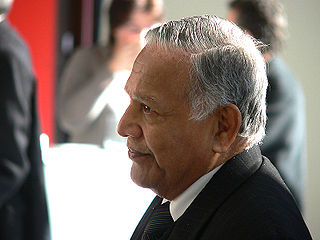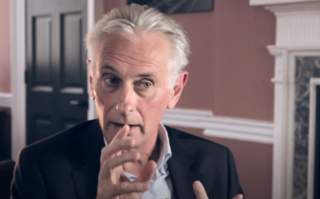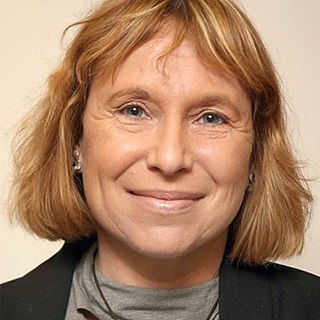Related Research Articles

The Universal Declaration of Human Rights (UDHR) is an international document adopted by the United Nations General Assembly that enshrines the rights and freedoms of all human beings. It was accepted by the General Assembly as Resolution 217 during its third session on 10 December 1948 at the Palais de Chaillot in Paris, France. Of the 58 members of the United Nations at the time, 48 voted in favour, none against, eight abstained, and two did not vote.
Civil and political rights are a class of rights that protect individuals' freedom from infringement by governments, social organizations, and private individuals. They ensure one's entitlement to participate in the civil and political life of society and the state without discrimination or repression.
Monash University Faculty of Law, or Monash Law School, is the law school of Monash University. Founded in 1963, it is based in Melbourne, Victoria and has campuses in Malaysia and Italy. It is consistently ranked as one of the top law schools in Australia and globally, and entry to its Bachelor of Laws (LLB) programme is highly competitive.
The Castan Centre for Human Rights Law is a research centre located within the Monash University Law Faculty in Victoria, Australia. It was established in 2000 to meet the need for, and interest in, the study of human rights law globally, regionally and in Australia. It grew rapidly to become the largest research centre in the Monash Law School. It is the preeminent human rights centre in the Asia-Pacific region, and is one of Australia's most respected human rights monitoring organisations. Its function is to bring together the work of national and international human rights scholars, practitioners and advocates from a wide range of disciplines in order to promote and protect human rights.
Elizabeth Andreas Evatt, an eminent Australian reformist lawyer and jurist who sat on numerous national and international tribunals and commissions, was the first Chief Justice of the Family Court of Australia, the first female judge of an Australian federal court, and the first Australian to be elected to the United Nations Human Rights Committee.

Melbourne Law School is one of the professional graduate schools of the University of Melbourne. Located in Carlton, Victoria, MLS is the most prestigious and one of Australia's oldest law schools, which offers J.D., LL.M, Ph.D, and LL.D degrees. In 2020, QS World University Rankings ranked the law school as 10th best in the world and first both in Australia and Asia-Pacific.

Sri Lankabhimanya Christopher Gregory Weeramantry, AM was a Sri Lankan lawyer who was a Judge of the International Court of Justice (ICJ) from 1991 to 2000, serving as its vice-president from 1997 to 2000. Weeramantry was a judge of the Supreme Court of Sri Lanka from 1967 to 1972. He also served as an emeritus professor at Monash University and as the president of the International Association of Lawyers against Nuclear Arms.

Colombia is a sovereign state situated in South America. It has been a member of the United Nations since 5 November 1945, and is party to a variety of international agreements concerning human rights. It also has a series of domestic laws concerning the protection of human rights. However, Colombia's human rights record often contradicts directly with the laws and agreements to which it is bound; Colombia was referred to as the country with the "worst human rights record in the western hemisphere," by HRW in 2007. The same was said of Guatemala in 1998, as well as Cuba in 2012 and Venezuela today. In the UK Foreign Office annual human rights report for 2010, Colombia features as one of 20 "Countries of Concern".
Felicity Pia Hampel is a prominent Australian human rights lawyer and, since 2005, judge of the County Court of Victoria. Hampel's career as a barrister began in 1981, and she became a Senior Counsel in 1996.
Enid Mona Campbell, AC, OBE, FASSA was an Australian legal scholar, and was the first female professor and Dean of a law school in Australasia. She is known for her work on constitutional law and administrative law, as well as her contribution to legal education.
Peter Louis Waller was an Australian jurist. He was particularly well known for his work in evidence, medical and criminal law. He was Sir Leo Cussen Professor of Law at Monash University from 1965 until 2000, and thereafter Emeritus Professor. From 1968 to 1970 he was the Dean of the Faculty of Law at Monash University. From 1982 to 1984 he was the Law Reform Commissioner of Victoria. In 1984 he was appointed the Chairman of the Law Reform Commission, and from 1986 to 1992 he served as a part time Commissioner. He has also served as the chairman of a number of medical and legal organisations, including the Infertility Treatment Authority, International Humanitarian Law Committee of the Australian Red Cross Society, Ethics Committee of the Walter and Eliza Hall Institute of Medical Research, and the Appeals Committee of the Royal Australasian College of Surgeons. Professor Waller previously served as Visiting Professor and Research Fellow in several universities in the United States, United Kingdom, Canada and Israel.

Thio Li-ann is a Singaporean law professor at the National University of Singapore. She was educated at the University of Oxford, Harvard Law School and the University of Cambridge. In January 2007, she was appointed a Nominated Member of Parliament (NMP) in Singapore's 11th Parliament.
Associate Professor David Peter Wright-Neville is an Australian academic, specialising in international relations and terrorism. He was Deputy Director of the Global Terrorism Research Centre and an Associate Professor of Politics in the School of Political and Social Inquiry at Monash University until his resignation in 2009. He is one of Australia's most well-known commentators on terrorism. His contributions to discussions on terrorism regularly appear in Australian and overseas media In 2008, he was selected to participate in the Australia 2020 Summit.

Sarah Hull Cleveland is an American law professor and noted expert in international law and the constitutional law of U.S. foreign relations, with particular interests in the status of international law in U.S. domestic law, international and comparative human rights law, international humanitarian law, and national security.
Kevin Harcourt Bell is a former judge of the Supreme Court of Victoria, in the Australian state of Victoria between February 2005 and March 2012.

Keith D. Ewing is professor of public law at King's College London and recognised as a leading scholar in public law, constitutional law, law of democracy, labour law and human rights.
Marilyn Lee Lake, is an Australian historian known for her work on the effects of the military and war on Australian civil society, the political history of Australian women and Australian racism including the White Australia Policy and the movement for Aboriginal and Torres Strait Islander human rights. She was awarded a Personal Chair in History at La Trobe University in 1994. She has been elected a Fellow, Australian Academy of the Humanities and a Fellow, Academy of the Social Sciences in Australia.

The Centre for Human Rights at the University of Pretoria Faculty of Law, South Africa, is an organisation dedicated to promoting human rights on the continent of Africa. The Centre, founded in 1986, promotes human rights through educational outreach, including multinational conferences, seminars and publications such as Human Rights Law in Africa, The African Human Rights Law Journal, the African Human Rights Law Reports and The Constitutional Law of South Africa. The Centre, which was founded during Apartheid, assisted in adapting a Bill of Rights for South Africa and contributed to creating the South African Constitution. In 2006, the Centre received the UNESCO Prize for Human Rights Education, particular recognising for the LLM in Human Rights and Democratisation in Africa and the African Human Rights Moot Court Competition.
David Kretzmer is an Israeli expert in international and constitutional law. He is professor emeritus of international law of the Hebrew University in Jerusalem and professor of law at the Transitional Justice Institute at the University of Ulster in Northern Ireland. He has been a member of international and Israeli Human Rights organizations, including the UN Human Rights Committee under the International Covenant on Civil and Political Rights, serving as its vice-chairperson in 2001 and 2002. He established the Centre for Human Rights at the Hebrew University of Jerusalem and was a founding member of the Association for Civil Rights in Israel, the Minerva Centre for Human Rights, a joint centre of the Hebrew University and Tel Aviv University. He is also a founding member of B'Tselem.

Fania Oz-Salzberger is an Israeli historian and writer, professor of history at the University of Haifa School of Law and Haifa Center for German and European Studies (HCGES).
References
- 1 2 Professor Sarah Joseph, Monash Law Archived 30 August 2007 at the Wayback Machine
- ↑ Joseph to direct Monash human rights centre Archived 13 March 2007 at the Wayback Machine
- ↑ Professor Sarah Joseph, Monash Law Archived 30 August 2007 at the Wayback Machine